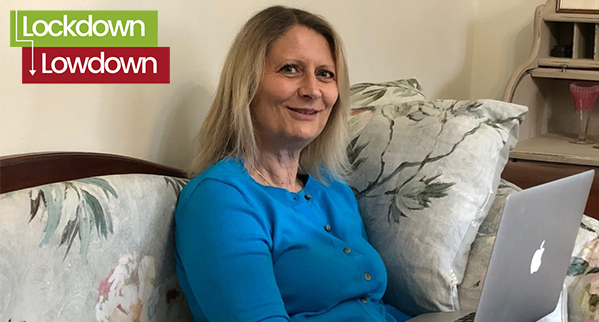Kay Hoggett had senior leadership roles in international corporates before setting up her own successful business providing consultancy, change management and coaching to large firms. Qualified and experienced in coaching, therapy, NLP and management, she helps people improve their mental wellbeing, navigate challenges and achieve their goals. Louise was introduced to Kay 20 years ago and she was her coach as Louise got her business off the ground.
Coaching and therapy during lockdown
Louise: Presumably your work as a coach and therapist is absolutely dependent on building relationships of trust with your clients. Bringing issues ‘into the room’ and being able to pick up on the subtleties of body language are vital. How are you finding remote working?
Kay: Normally I would work face to face with most clients, and I must admit that I wouldn’t have chosen to move to working solely remotely. You are right about the centrality of the relationship, and I was concerned that this might be an issue, especially with new clients. Would I be able to foster a sense of connection and trust with someone who has never met me, and who might need to share material that they have never spoken of before?
In the event though, I have found that it does work effectively. Clients have adapted really well, and there is evidence that some people find it easier to voice difficult thoughts and feelings when there is some distance – I have noticed this myself. I already had some experience of remote coaching and therapy and had educated myself about it. And whilst coaching and therapy are a much more intimate experience, I probably was also helped by my years of working as a consultant, when remote meetings were a normal part of my working life.
We read a lot about how people are struggling with isolation, anxiety and depression at the moment. Do you think there is sufficient support for those who need it?
Sadly there isn’t, either in ‘normal’ times or now. Support via the NHS is limited and patchy, although some areas do have good services. The biggest issue in my opinion is that it’s very difficult to get longer term therapy, and this is often what is needed. This is where charities and private practitioners come in. As well as my private practice, I volunteer with a charity, and we offer affordable longer term counselling, although unfortunately there is a waiting list. The Samaritans do a wonderful job – it’s not therapy, but a great service of non-judgmental listening, and I would recommend anyone who feels they need immediate support to contact them.
What would you say to someone who is reluctant to ask for help?
It’s understandable that people can feel reluctant. The prospect of talking to a complete stranger about our innermost thoughts and feelings can be daunting. And some feel that asking for help implies weakness, an attitude not helped by the stigma that still exists to some extent about mental health issues (although I’m glad to say there has been huge improvement).
“But getting the right help can be life changing. I would say, try it and see.”
It’s important to check that the service or therapist you contact is a member of a professional body (mine is the British Association for Counselling and Psychotherapy (BACP)). The BACP has an ethical framework we all abide by; it ensures that we put your – the client’s – wellbeing at the heart of all that we do. And, with private therapy at least, you are perfectly entitled to try more than one therapist, to see who is a good fit for you.

